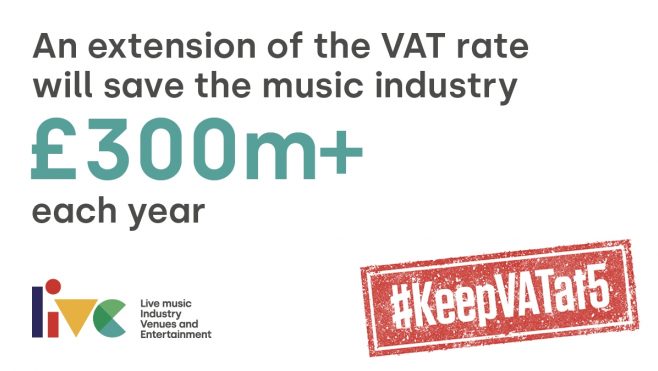The live music industry has been one of the most adversely impacted during the pandemic. Yet, with an end finally in sight, we were concerned that vital support that had been offered may end before the industry could benefit from it. Working with our client LIVE we helped secure hundreds of millions of pounds in vital support through the Budget.
The UK’s world-leading live music industry – a rich addition to our cultural and economic fabric – was supported primarily by two key Government measures: the £1.57 billion Culture Recovery Fund (CRF) and a reduction on the VAT rate for ticket sales to 5%. The CRF had kept many grassroots venues and world-renowned institutions afloat, but despite the industry being largely unable to benefit from the positive impact of the reduced rate of VAT due to the year-long closure, it was set to end. An increase in the rate of VAT would have been disastrous at this stage of the Covid crisis, it would have taken hundreds of millions of pounds that was needed to rebuild the industry and rendered the initial policy meaningless.

With so little time, and with so much at stake, we had to think outside the box and be precise with our campaign. Our previous #LetTheMusicPlay campaign had relied on a groundswell of popular support from fans and artists, but with such a niche issue in play with VAT, we needed to reach businesses for whom the last 12 months had been extremely difficult.
We devised a clear and simple message that would be easily and quickly understood over social media. We designed the campaign to self-create content and coordinated with businesses from across the industry to post on a specific day that the reduction in VAT was important to them. The LIVE website acted as a hub for the campaign, providing key messages and social graphics that could be downloaded and adapted.
Pulling the plug on the reduced VAT rate for live event ticket sales now would be short-sighted. In our July 2020 report @CommonsDCMS recommended the 5% rate be kept for three years.
— Julian Knight MP (@julianknight15) February 4, 2021
With live events still unable to operate, this is needed more than ever #KeepVATat5 pic.twitter.com/znkgWPu9YU
Our message was heard across the spectrum, with artists, festivals, and some of our leading national venues putting their support behind the campaign. The #KeepVATat5 hashtag reached over 14 million users and had over 180,000 interactions and shares within a 24-hour period.
Last year the UK Chancellor cut VAT on gig tickets to 5%, if it is reversed, the rate (which is due to end in March) will take millions from the live music industry when it needs it the most. Please support#KeepVATat5 🙌 pic.twitter.com/VdXJ86wnRs
— Kaiser Chiefs (@KaiserChiefs) February 4, 2021
Alongside the digital campaign we also used more traditional public affairs techniques as a way of building political support. We brought together over 20 leading industry voices from the music, theatre and events industries to write publicly to the Chancellor calling for the VAT rate of 5% to be extended. The Chair of the DCMS Select Committee also agreed to be a key public voice for our campaign. As well as this, we reached out to relevant stakeholders in DCMS and the Treasury.
With the weight of industry support for our campaign, we were able to reach political stakeholders with a more unified message.
Today, 34 trade associations representing the entirety of music and theatre in the UK, have written to @RishiSunak to ask him not to increase VAT by 400% at the moment the arts needs support the most #KeepVATat5. Pls get involved: https://t.co/cPlVsRVuJQ pic.twitter.com/SDcMR9VwLg
— LIVE (@LiveMusic_UK) February 4, 2021
The team used its extensive network of media contacts to secure key coverage for the campaign in national outlets such as the BBC, Sky News, Times Radio and the Evening Standard. In addition, trade media such as NME, IQ Magazine, and The Stage featured the story.
The live music industry was delighted to see the Chancellor extend the 5% VAT cut to September with a further reduced rate of 12.5% from then October to April 2022. This extension will provide crucial income to businesses across the live music ecosystem whilst they recover and will keep up to £300m in the industry when it needs it most.
Some of our latest Case Studies






